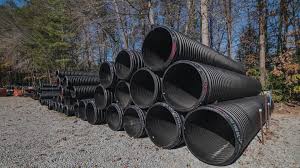Aug . 12, 2024 17:22 Back to list
Exploring the Applications and Benefits of PPR Pipes in Various Manufacturing Industries
The Use of PPR Pipes in Manufacturing An Overview
PPR (Polypropylene Random Copolymer) pipes have gained significant traction in various industries over the years, becoming a preferred choice for manufacturers seeking reliable and efficient plumbing solutions. Their exceptional properties are transforming conventional manufacturing processes while addressing issues associated with traditional materials. This article delves into the benefits, applications, and future of PPR pipes in the manufacturing sector.
Understanding PPR Pipes
PPR pipes are made from a durable form of polypropylene, which possesses unique chemical and physical properties. These include high resistance to chemicals, excellent thermal stability, and lightweight characteristics, making them ideal for transporting hot and cold fluids. The manufacturing process of PPR pipes involves the random copolymerization of polypropylene, leading to a material that boasts high impact strength and flexibility.
Advantages of PPR Pipes in Manufacturing
1. Corrosion Resistance One of the standout features of PPR pipes is their resistance to corrosion. Unlike metal pipes, which are prone to rust and degradation over time, PPR does not react to the chemicals it encounters. This property is particularly advantageous for industries involved in the transportation of aggressive chemicals, such as pharmaceuticals and food processing.
2. Longevity PPR pipes have a long service life, often exceeding 50 years under normal working conditions. This durability makes them a cost-effective choice for manufacturers who want to minimize maintenance and replacement costs.
3. Energy Efficiency The thermal insulation properties of PPR pipes allow them to reduce energy losses when transporting hot fluids. This can significantly lower energy consumption in manufacturing processes involving heated materials, leading to both cost savings and a reduced environmental footprint.
4. Ease of Installation PPR pipes are lightweight and easy to handle, simplifying the installation process. They can be welded using heat fusion techniques, which create strong joints that are as reliable as the pipe itself. This ease of installation can greatly reduce labor costs and project timelines for manufacturers.
ppr pipe used for manufacturer

5. Versatility PPR pipes are versatile and can be used across various applications, including water supply systems, irrigation systems, chemical transport, and HVAC systems. Their adaptability is a significant advantage for manufacturers looking to streamline their supply chains and reduce reliance on multiple types of pipes.
Applications in Manufacturing
The use of PPR pipes spans a diverse range of industries
- Food and Beverage Industry PPR pipes are used for transporting water and other liquids safely, meeting the strict hygiene standards required in food processing. - Chemical Industry Their chemical resistance makes them ideal for carrying corrosive substances without the risk of leaks or contamination.
- Construction and Infrastructure In modern buildings, PPR pipes are increasingly utilized for plumbing systems due to their reliability and long service life.
- Renewable Energy With the rise of green technologies, PPR pipes are utilized in solar heating systems, further highlighting their versatility and efficiency.
The Future of PPR Pipes in Manufacturing
As industries continue to evolve and prioritize sustainability, the demand for efficient, durable, and eco-friendly materials like PPR pipes will likely increase. Innovations in manufacturing processes and the development of more advanced PPR formulations will further enhance the properties of these pipes, making them even more appealing to manufacturers.
In conclusion, PPR pipes represent a significant advancement in piping technology for manufacturers. Their unique properties, coupled with the growing emphasis on sustainability and efficiency, position PPR pipes as a cornerstone material in the future of manufacturing. As industries adapt to changing regulations and environmental considerations, the reliance on durable solutions such as PPR will continue to rise, paving the way for a more efficient manufacturing landscape.
-
High-Quality PVC Borehole Pipes Durable & Versatile Pipe Solutions
NewsJul.08,2025
-
High-Quality PVC Perforated Pipes for Efficient Drainage Leading Manufacturers & Factories
NewsJul.08,2025
-
High-Quality PVC Borehole Pipes Durable Pipe Solutions by Leading Manufacturer
NewsJul.08,2025
-
High-Quality PVC Borehole Pipes Reliable PVC Pipe Manufacturer Solutions
NewsJul.07,2025
-
High-Quality UPVC Drain Pipes Durable HDPE & Drain Pipe Solutions
NewsJul.07,2025
-
High-Quality Conduit Pipes & HDPE Conduit Fittings Manufacturer Reliable Factory Supply
NewsJul.06,2025

